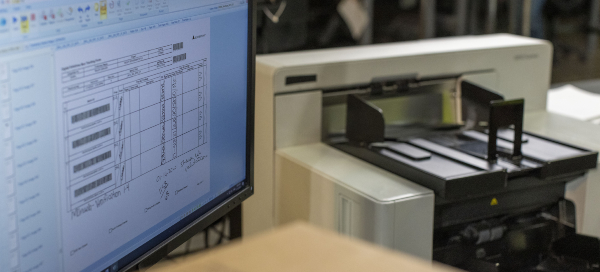Document scanning success story: City council digitises office administration
Find out how Iron Mountain supports the Foreigners' Registration Office in the town of Schwäbisch Gmünd with digitisation and records management.

City council optimises foreigners’ registration office administration with digital processes
Our Iron Mountain solution was less expensive than purchasing new carousels and setting up additional office space. And we’ve now got all the productivity and collaboration benefits of digital workflows.
Challenge:
Solution:
Iron Mountain® Backfile Scanning provided a fast, efficient, and data protection (GDPR) compliant process, converting legacy paper files and handwritten notes into digital records for uploading via SFTP to the council’s document management system.
Results:
Staff work more efficiently and respond quicker to court and agency requests. There’s also less risk of essential documents getting lost or mislaid. Other benefits include space savings, lower storage costs and continuous access to files for remote workers.
Simplifying pressured office processes
Purchasing three new storage carousels would have cost about ¤120,000 and we would still be left with the same administration and space problems.
Sprawling hard-to-manage archive
Outdated paper-based work practices
Set in the picturesque foothills of the Swabian Alb and Dreikaiserberge mountains, the town of Schwäbisch Gmünd is home to around 60,000 people. The city council had been moving towards digital public services and e-government processes. Due to the influx of refugees, the Foreigners’ Registration Office for Immigration had come under particular pressure and thus moved into the spotlight.
“Records management became increasingly challenging at the Foreigners’ Registration Office,” says Project Leader, Christian Dolle. “There were over 11,000 paper files kept in carousel storage units, which were timeworn and beyond repair. Fast running out of room, we had to install temporary racks taking up more and more office space.”
Solid commercial case
Having recently introduced a document management system and integrated it with LaDiVA, a programme that is used by other German immigration authorities, the council seized the opportunity to move to digital records. The decision made sound financial sense too. “Purchasing three new storage carousels would have cost about ¤120,000 and we would still be left with the same administration and space problems,” adds Dolle.
Featured services & solutions
Document scanning and digital storage
Transform your business and centralise your information with digital scanning and storage
Public sector
Lead the way in records management, storage, shredding, and digitisation of data
Digital transformation: Are we there yet?
Accelerate your digital transformation journey in five steps.
Related resources
View More Resources
InSight Digital Experience Platform (DXP)

Iron Mountain InSight Intelligent Document Processing solution brief

